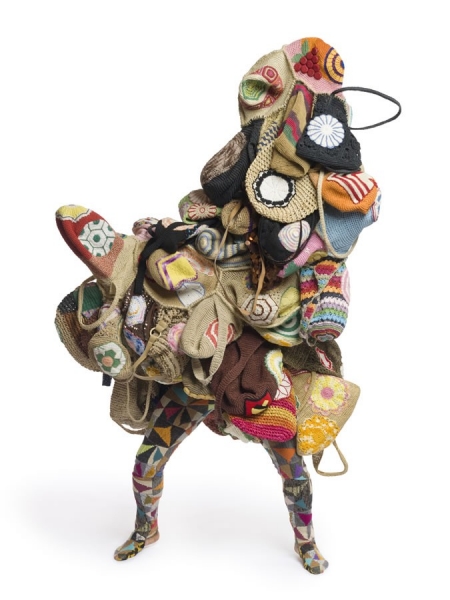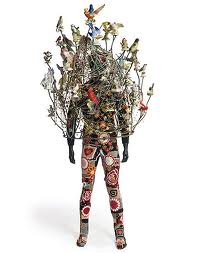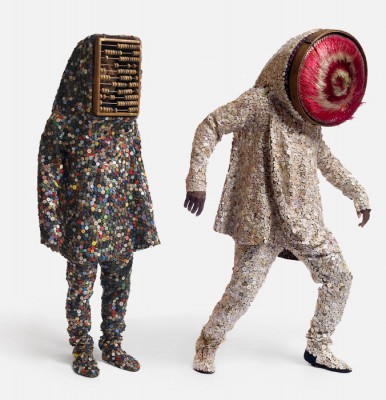Because It's Sunday: Sesshu Foster answers my questions, complete and unexpurgated text
If you are an attentive reader of this weblog, you will have already read a fragment of the following interview, which was conducted via the Internet some weeks past. Here's the whole thing. Next Sunday, if I remember, I will post Part Two, in which I answer Sesshu's questions.
Me: Given that elephant seals are the marine descendants of bears, and manatees are descended from cows, and otters from foxes and sea lions from dogs, what are you doing to prepare for human evolution into analogous pinniped form?
Sesshu: To prepare for eventual evolution of humans into pinniped sea mammalians, I continue to walk in the rain every chance I get. Even in memory, you can find me walking around downtown Seattle in the pouring rain on First St. down to Pioneer Square and back to Pike Market, where there used to be a good bookstore, and it’s the same rain I was walking in in East L.A. in 1973 in army jacket thinking about the CIA supported military coup in Chile that resulted in 3,000 desaparecidos and I was walking the hills of East L.A. thinking about that as the Vietnam War ground on and on, and it was raining... it was raining... Not to mention all those years of rain in the Bay Area, San Francisco in the pouring rain... rain pouring into the Grand Canyon... the ancient rain, Bob Kaufman called it---the dry rain of photochemical particulate on Los Angeles sunsets expelled from my lungs in little Aztec plumes of breath. I swim in the rain behind my eyeballs. In the jails and on stairs to nowhere it rains, sometimes dry rain, sometimes rain of darkness. Sometimes rivers of dreaming.
Me: Will we need special clothes?
Sesshu: Gortex made from salmon skin.
Me: Or no clothes at all?
Sesshu: Or clothes made of rice paper.
Me: Will that be awkward at first? For whom?
Sesshu: Everything is awkward, that is rule of Nature. Isaac Newton discovered Law of Gravity. De Carte discovered rules of Geometry. Socrates discovered Laws of Catehedrons. Nubis discovered the Rule of Pyramids. Marx delineated Laws of Surplus Value. Charles Darwin delineated Law of Nature is Awkward first, and forever.
Me: Do you agree with leading pundits on CNN who regard the coming pinniped evolution as "the bright side of rising seas"?
Sesshu: ...
Me: Or did they say, "rising seethe"? Or "seeds"? Maybe they meant seeds.
Sesshu:
Me: Is it a) pragmatism, or b) treason, to participate in "outreach programs" to respected figures in the seal community?
Sesshu: Female sea lion looked me directly in the face as if to lick me (or bite my nose) in Sea of Cortez a couple years ago. Caused me to get out of the water, scared her too because I jumped so fast.
Me: Does this explain your search for Juan Fish?
Sesshu: Studies triangulating coordinates of Juan Fish truck sightings reveals his intimate relationship to Mysteries of East L.A. and Terrain Ringing like a Bell.
Me: Do you still have your Songs of the Humpback Whale LPs?
Sesshu: Not sure. But I can reproduce these calls of whales on my old Smith Corona manual typewriter, in a way.
Me: What about diet?
Sesshu: Lentils.
Me: Will Hunan Chile Fish Head still appeal?
Sesshu: It appealed to me last week but we didn’t have enough eaters to eat one.
Me: And literature? What about that? What about poetry? Won't the sand cause chafing?
Sesshu: We already have Melville, Conrad, Peter Mathiessen’s Far Tortuga edited by Howard Norman, the works of Knud Rasmussen, and if people can refrain from eating virtually every living thing on the planet, we might innovate interspecies communication enough to get a first person account of life under the sea equivalent to Walt Whitman’s poem, “the World Under the Brine,” much like Garcilaso de la Vega’s Royal Commentaries of the Incas. And his poetry, which I haven’t read.
Me: As a pinniped-in-the-process-of-becoming, what position have you adapted with respect to porpoises and dying dolphins? What platforms, what distribution networks do you expect to employ? What will be the impacts? Will there be three, or some more even number?
Sesshu: It’s true that porpoises and even dying dolphins appear to be laughing at our attempts to shed vicious human traits of apocalyptic destruction of the world, our environment, their environment, other environments and other worlds. Destruction of everything, nuclear winter or collapse of civilizations, whichever comes first. But perhaps we might cast our visions and our quirks into digital figures or formats that the more generous among them might consider. After all, they like anchovies too.
Me: And seas of ash?
Sesshu: Seas of ash will continue to be a problem until oil company executives are imprisoned and executed with the same frequency as black people.
Me: How will this affect the eightfold trajectory of cephalopod verse?
Sesshu: I cannot really speak for the underwater poets, but I am working on translations of some of the longer cephalopod “songs,” and it is clear that they do tend to speak of historical eras when bipedal industrial capitalism has been entirely forgotten. Scholars used to believe that these and other animal “literatures” referred to an “alogocentric” and “anima-centric” world view which excluded direct reference to humanity and its sophisticated structures as a form of brute ignorance of our divinity, as well as a kind of extreme prejudice against such a clever species as ourselves, but it has recently become clear that these songs project into a future in which we are not located anywhere in it. They have forgotten us already, and we are still here. In our way.
Me: Is it too late to switch to a duodecimal system? Might that not make some, small difference? At least as far as the old "No broker" apartment scam goes?
Sesshu: In humans, the duodenum is a hollow jointed tube about 10–12 inch long co nnecting the stomach to the jejunum. It begins with the duodenal bulb and ends at the ligament of Treitz. Once we are able to figure out how many Brooklyn apartment brokers it takes to change a duodenal bulb, we should arrive at Treitz, where we can get a cup of coffee and work on the transition.
Me: Are individual acts of kindness sufficient, or do we need something more hardcore, like neutron bombs?
Sesshu: It turns out that neither has the intended effect, the effect for which it is intended, and neither kindness nor killers are of any use in contemporary politix and enviro-schizisms at all. Sadly, it turns out the only thing that works, that has any effect are Nick Cave’s Soundsuits, and academic and Center for Disease Control studies have proven that only suiting every man, woman and child, even toddlers, in these suits will have any affect on the planet and the trajectory of our global prognosis.
So here are today’s most widely used choices:
a.  b.
b. 
c. and d. 
Considering that we will have to wear these suits for the rest of our lives to effect global warming and ensure the survival of our children and pets, I tend toward the one with the great abacus faceplate, but my wife prefers that I sport the round furry red camellia with a two foot diameter. Which one would you like to wear and pass down to your descendants?
Me: What's that up in the sky?
Sesshu: That’s Sergio, trying to learn how to drive one of our dirigibles. Keep an eye out because he might crash anywhere.
Me: What's stored up there in the top floor of L.A.'s City Hall? I mean other than the all-seeing eye, the mayor's soul, and the thousands upon thousands of LAPD-confiscated paleta, tamale, and bacon-wrapped hot dog carts. What else they got up there?
Sesshu: On the top floor of City Hall where a discreet employee of the departments can be fo und smoking on her break high above the city she serves, is where they keep the bronze bust of Tom Bradley, former LAPD officer, whom incumbent Sam Yorty tried to defeat in his second campaign by calling him a communist. There doesn’t seem to be any bust of Sam Yorty. Though the discarded remains of a partially eaten burger left near the waste receptacle is reminiscent of the man’s smile of hatred. And a scrap of styrofoam is brittle like his mentality.
Me: When you slipped on a slippery rock and broke your ankle and lay there suffering among the other slippery rocks in the stream, did it occur to you that it might be interesting to build streaming video out of real, ice-cold, mountain snowmelt streams and that the American consumer might be willing to shell out Serious Cash for such a hand-crafted and authentic streaming experience? Rather that one made in China, for instance, by robots.
Sesshu: The Chinese are at work at fashioning American consumerism by robots and when that change is effected the entire nation shall be replaced by a single machine shipped out of the Haijin docks at Hangzhou and assembled in Mexico. Americans who are so proud of their individualist ideologies have failed to notice these ideologies (“conservative,” “outlaw,” “liberal,” “left-wing,” “Christian,” “pro-life,” etc.) were manufactured by young Chinese women in sweatshop conditions in vast factories.
Me: Is Serious Cash more or less serious than Serious Shit?
Sesshu: I’m sure it was Johnny Cash who said, “Failure to address the milk to Wheaties or Rice Crispies ratio is a cereal killer.”
Me: What about Serious Literature? Where does that fit in?
Sesshu: You can find serious literature in the back, behind the celebrity sex manuals.
Me: Is Nicanor Parra for real?
Sesshu: He is. Or he was. Maybe Raul Zurita is real now.
Me: What about "realism"? Is that real? If you pour it in an ice cube tray and stick a toothpick in it, is it refreshing on a hot, summer day?
Sesshu: Realism is the drink that refreshes. In Moab, UT, on any day in August when it’s 100 degrees at 7 AM after a morning swim in the Apache Motel pool, pour a bit more realism in to your coolant tank to make the grade north of town by the 15 or 20 million tons of uranium tailings “90 feet high at its highest point” leaching into the Colorado river just to the north of town.
Me: Which do you regard as more real, or more seriously real: socialist realism, Connecticut academic-adultery realism, or REAL ID?
Sesshu: ...
Me: Does it worry you that the "real" is used as currency in Brazil, that you can walk around with it jingling in your pockets, that you can exchange it for fruit juices, flowers, mate, Murphy beds, shrimps on sticks? Does this give the Brazilians a leg-up in the "real economy"? Should there be sanctions?
Sesshu: The Brasilians are ahead of us in every area, I’m not sure why. Probably because of Joaquim Maria Machado de Assis, he gave them the damned insights that spurred their advances of leaps and bounds over Americans who were building bridges of sighs in Topeka, Tallahassee and Philadelphia, San Diego, Tustin and Reno. If only Americans were not so habituated to endless construction of bridges of sighs, they might get off their collective ass. Luckily, the Brasilians have some cults that might distract them in this strange competition.
Me: Does this relate in any way to "Amazon rankings"?
Sesshu: When Brasilian gangsters sing, “Stop your ranking, stop that skanking,” they are just trying to scuttle Americanism down by the liquor store. Drive away fast in your biggest American car you can find into the stars. (The music rises at this point.)
Me: What about the ink? How will it ever dry when we're all underwater? Where will we store our words?
Sesshu: (Music drowns out everything at this point.)
 b.
b.